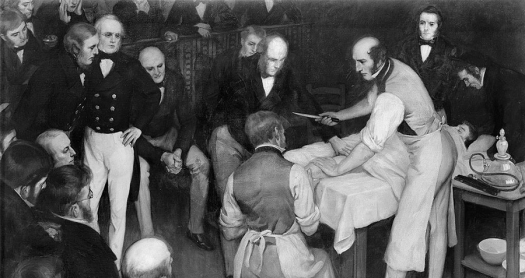In September of 2014, Tom Maxwell moved with his family into a large, historic home in Hillsborough, North Carolina. With its affordable rent and lush surroundings, it seemed too good to be true. Nine months later, they broke their lease, loaded up the truck, and ran away as fast as they could from the spirits and apparitions that had tortured them. Only afterward would Maxwell learn about the 300 years of bad mojo that had piled up in the house they called Nannie.
“The old and sturdy house, set on rolling pastureland alongside a placid river, appeared safe and calm. It was not. Nannie, and the land around her, was thoroughly haunted. In less than a year we would break the lease, perform a binding ritual, and leave.
As the nature and intensity of the hauntings increased, an elongate man appeared downstairs, almost two-dimensional in his flatness. He would peep at you from around corners or through doorways, just inside your peripheral vision. When you looked at him, he would flash a toothy smile, flatten into the wall and vanish. Scratches appeared on Brooke’s back several times, before my eyes, as we showered.
A hooded thing with long, thin arms began standing over Brooke as she slept. We discussed the possibility of night-hag syndrome, a particularly unpleasant type of sleep paralysis. Whatever it was, it was recurring and utterly terrifying. We had a list of nicknames for our tormentors: Smokey, Spaghetti Arms, The Spook Parade, Bonnet Lady, Smiley, Buckskin Man, Kitchen Lady, The Upstairs Thing.”









